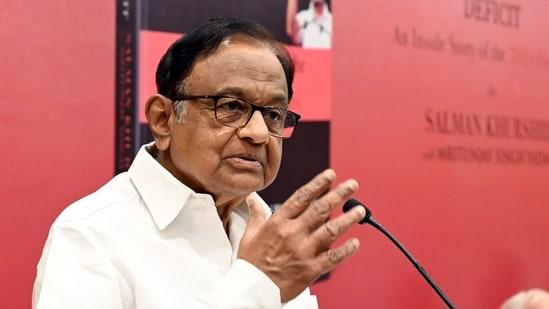Pahalgam Terror Attack Debate Ignites Political Storm Between Congress and BJP
Hours before Parliament convened to discuss India’s bold military retaliation dubbed Operation Sindoor, a political firestorm took center stage. At the core of the dispute? Comments made by senior Congress leader and former Home Minister P Chidambaram questioning the evidence trail in the recent Pahalgam terror attack that left several security personnel dead.
Chidambaram’s televised remarks suggesting that the attackers might be “homegrown terrorists”—and his pointed observation that there is currently “no evidence” showing the assailants came from Pakistan—sparked a furious backlash. These words came in the context of a larger interview, but it was a clipped excerpt that shot like wildfire across platforms, eliciting sharp criticism from the ruling BJP.
Chidambaram’s Comments Stir the Pot
In an interview with The Quint, Chidambaram raised critical questions about the official investigation. He stated:
“Why have you not apprehended [the terrorists]? Why have you not even identified them?”
He emphasized the importance of publicly presenting evidence if Pakistan is to be held accountable globally. The former minister’s tone was skeptical of the NDA government’s handling of the crisis and called for transparency.
Timeline of Events
- Late Sunday Night: BJP’s IT cell head, Amit Malviya, posted a short clip of Chidambaram’s interview, accusing Congress of giving Pakistan a “clean chit.” He criticized the Congress party’s pattern of undermining national interests.
- Monday Morning: Chidambaram responded with a strong accusation of being selectively edited and trolled. He wrote, “Trolls are of different kinds and use different tools to spread misinformation.”
- Mid-morning: His son, Karti Chidambaram, jumped in, asking critics to watch the entire video and stop relying on snippets.
- Monday Afternoon and Beyond: As Parliament prepared to debate Operation Sindoor, the larger political discourse remained tethered to the deeper implications of Chidambaram’s remarks.
Official Statements Echo Frustration
Amit Malviya didn’t hold back in his accusation, saying:
“When it comes to national security, there should be no ambiguity. But with the Congress, there never is – they always bend over backwards to protect the enemy.”
It’s worth pausing on that. No ambiguity? It’s a stark claim. Yet, Malviya’s choice of words captured the frustration within the BJP over what they perceive as a recurring pattern—statements undermining national unity at critical moments. At the same time, Chidambaram’s own rebuttal reflected his sense of being misrepresented:
“The worst kind is a troll who suppresses the full recorded interview, takes two sentences, mutes some words, and paints the speaker in a black colour!”
Words, apparently, have become weapons in this tug-of-war.
Community Response and Online Reactions
Public reaction has been—let’s say—split. Some viewers of Chidambaram’s interview argue his statement was thoughtful and nuanced. Others believe it sowed doubt at a sensitive moment. Online forums, especially on X (formerly Twitter), have exploded with opinions, memes, and video breakdowns of the interview.
Many questioned why it took the National Investigation Agency (NIA) so long to name the attackers. So far, the NIA has arrested two local men in Kashmir who allegedly revealed that the attackers belonged to Pakistan-based Lashkar-e-Taiba. But official names? Still under wraps.
Bigger Picture: Operation Sindoor and Parliamentary Debate
While this dispute raged, a more critical national conversation approached. Operation Sindoor, India’s direct military and diplomatic response to the Pahalgam attack, was tabled for debate in both houses of Parliament. The Lok Sabha was to take it up Monday, and the Rajya Sabha the following day.
This dual discussion meant all eyes were locked on both the military response—and the political messaging around it. In this context, Chidambaram’s comments stoked an already turbulent environment. Some may wonder: was this a misstep in timing or a deliberate attempt to open up a larger conversation on evidence and accountability?
Either way, the discussion points to something deeper. A tension between national security narratives and political partisanship. Between evidence and emotion. Between questions and accusations.
What’s Next in the National Discourse?
There are no simple takeaways here. Parliament’s discussion on Operation Sindoor may offer a clearer view on how the government intends to proceed, both on the military and diplomatic fronts. But for now, questions remain:
- Will the NIA release the names and nationalities of the attackers soon?
- Can political leaders avoid escalating the narrative in ways that polarize the public further?
- Will transparency in the investigation calm the storm or deepen divides?
You can see where this might be going—a long, tangled debate over who gets to frame the narrative.
Final Thoughts
What started as an interview spiraled into a multi-platform political drama. Perhaps that’s the new normal. But should it be? The public, the Parliament, and the press are left trying to parse truth from noise. Maybe watching a full interview is a good first step. More transparency from investigative bodies would help too.
Until then, mudslinging might remain the main event while serious questions continue to wait in the wings. And that—well—that may be the real concern here.

